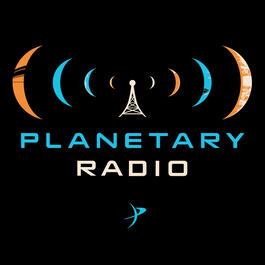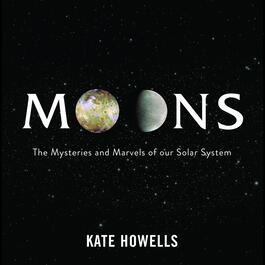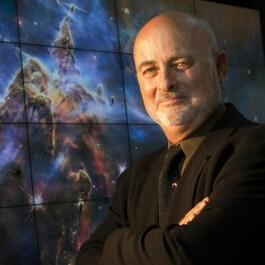
Planetary Radio: Space Exploration, Astronomy and Science
Planetary Radio brings you the human adventure across our Solar System and beyond. We visit each week with the scientists, engineers, leaders, advocates, and astronauts who are taking us across the final frontier. Regular features raise your space IQ while they put a smile on your face. Join host Sarah Al-Ahmed and Planetary Society colleagues including Bill Nye the Science Guy and Bruce Betts as they dive deep into space science and exploration. The monthly Space Policy Edition takes you inside the DC beltway where the future of the US space program hangs in the balance. Visit planetary.org/radio for an episode guide and much more.
Show episodes
Marcia Smith, the founder and editor of Space Policy Online, joins the show and revisits a conversation we had one year ago, recorded just weeks before the second Trump administration took office. That episode, “The Challenges of Change at NASA,” explored the institutional and political roadblocks to radical change at
As 2025 comes to a close, Planetary Radio looks back on a year that reshaped space exploration, through stunning discoveries, major milestones, unexpected challenges, and the people who carried science forward through it all. In this episode, Sarah Al-Ahmed, host and producer of Planetary Radio, is joined first by Kate
2025 was one of the most consequential years for space policy in modern U.S. history. In this special year-in-review episode, Planetary Radio takes a deep dive into what happened behind the scenes in U.S. space policy and advocacy as NASA faced unprecedented proposed cuts to its science programs. With nearly half of NA

Book Club Edition: MOONS: The Mysteries and Marvels of our Solar System by Kate Howells
It was such a delight to feature work by our own Kate Howells in The Planetary Society’s member book club. We keep Kate busy as our public education specialist, but she found time to write about many of her favorite natural satellites in this richly illustrated edition. Join her and book club host Mat Kaplan for a jour
Thirty years ago, NASA’s Galileo spacecraft became the first mission to orbit Jupiter, opening a new chapter in our exploration of the outer Solar System. Over eight years around Jupiter, Galileo transformed how we understand Jupiter and its moons, revealing a powerful and dynamic planetary system, uncovering evidence
Why do we explore space, and why does science matter in the first place? In this Space Policy Edition rerun, Planetary Society Chief of Space Policy Casey Dreier revisits a deeply influential 2020 conversation with philosopher and ethicist J. S. Johnson-Schwartz, author of The Value of Science and Space Exploration. As







